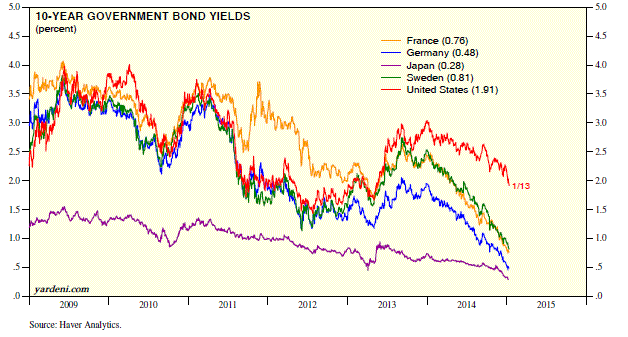
REITs are trusts that invest directly in real estate. The IRS revenue code outlines the requirements that REITs must meet in order to qualify. For example, they must have at least 100 shareholders. They also need to invest at least 75% in real property. They must also be able to derive 75% from real estate. Additionally, shareholders must receive at least 90% taxable income. REITs are also exempted from corporate taxes. Hence, they do not pay taxes on the income they generate.
Tax advantages
REIT investing has the primary tax benefit of not being subject to double taxation. This is when profits are first taxed at corporate level and then again when they are distributed to investors. Unlike the UK, which pays corporate income tax, most US businesses pass on profits to their owners or members according to individual federal tax laws. Pass-through businesses can be sole proprietorships, partnerships or limited liability companies.

There are risks
There are many potential risks with REITs. First, they can be expensive and they have growth that cannot be sustained without public capital. Also, it is important to remember that REITs do not offer traditional property investments and there is a high risk of losing access the capital markets. If the REIT can access public capital, high valuations may be sustainable. Investors can minimize the risk of investing in reit investments if they take the time learn about each REIT and the properties that it owns.
Capital expenditure
It is important to calculate the total returns that investors should expect from REITs and the cost of capital, which refers to the interest rate and the debt that must be paid to invest in real estate. A January 1998 article in Institutional Real Estate Securities revealed that very few REITs can return less than 12 per cent. The article states that equity capital is less expensive than other investments if investors take low interest rates, and receive modest returns from other investments.
Diversification
Real estate ETFs can be used by investors who are looking for diversification. These funds offer a huge categorical diversification potential. Preferred ETFs are able to provide capital growth for a long time, no matter how health or poor the issuing business. ETFs based on growth can project long-term future growth accurately. ETFs that are international offer investors a wide range of diversification options in markets with high long-term potential growth. Real estate investing success has been dependent upon diversification in ETFs for real estate.

Protection from inflation
Reit investing provides investors with a fantastic way to protect their portfolios in the face of inflation. Inflation is a major problem facing the commercial real estate industry, and the recovery should feed through to rising rental income, increasing the value of underlying assets. However, there are some REITs that provide implicit inflation protection. This applies especially to healthcare and care landlords. Target Healthcare, a care home specialist, increases its rents according to the retail price index (RPI), every three years. Primary Health Properties, another landlord in the health care sector, has a portion of its leases linked with the RPI index. They also pay generously inflation-linked dividends.
FAQ
Are bonds tradable?
They are, indeed! Bonds are traded on exchanges just as shares are. They have been for many years now.
The only difference is that you can not buy a bond directly at an issuer. You will need to go through a broker to purchase them.
Because there are less intermediaries, buying bonds is easier. This means that selling bonds is easier if someone is interested in buying them.
There are many kinds of bonds. There are many types of bonds. Some pay regular interest while others don't.
Some pay interest annually, while others pay quarterly. These differences make it possible to compare bonds.
Bonds are very useful when investing money. In other words, PS10,000 could be invested in a savings account to earn 0.75% annually. This amount would yield 12.5% annually if it were invested in a 10-year bond.
If you were to put all of these investments into a portfolio, then the total return over ten years would be higher using the bond investment.
How can I find a great investment company?
You should look for one that offers competitive fees, high-quality management, and a diversified portfolio. Fees vary depending on what security you have in your account. Some companies charge no fees for holding cash and others charge a flat fee per year regardless of the amount you deposit. Others charge a percentage on your total assets.
Also, find out about their past performance records. You might not choose a company with a poor track-record. Avoid low net asset value and volatile NAV companies.
You also need to verify their investment philosophy. An investment company should be willing to take risks in order to achieve higher returns. If they aren't willing to take risk, they may not meet your expectations.
How are securities traded?
The stock market is an exchange where investors buy shares of companies for money. Investors can purchase shares of companies to raise capital. Investors then sell these shares back to the company when they decide to profit from owning the company's assets.
The price at which stocks trade on the open market is determined by supply and demand. The price of stocks goes up if there are less buyers than sellers. Conversely, if there are more sellers than buyers, prices will fall.
There are two ways to trade stocks.
-
Directly from the company
-
Through a broker
How can people lose money in the stock market?
The stock market does not allow you to make money by selling high or buying low. It's a place where you lose money by buying high and selling low.
The stock exchange is a great place to invest if you are open to taking on risks. They will buy stocks at too low prices and then sell them when they feel they are too high.
They are hoping to benefit from the market's downs and ups. If they aren't careful, they might lose all of their money.
How do you invest in the stock exchange?
Brokers can help you sell or buy securities. Brokers can buy or sell securities on your behalf. When you trade securities, you pay brokerage commissions.
Brokers usually charge higher fees than banks. Banks often offer better rates because they don't make their money selling securities.
An account must be opened with a broker or bank if you plan to invest in stock.
A broker will inform you of the cost to purchase or sell securities. Based on the amount of each transaction, he will calculate this fee.
Ask your broker:
-
Minimum amount required to open a trading account
-
whether there are additional charges if you close your position before expiration
-
What happens if your loss exceeds $5,000 in one day?
-
how many days can you hold positions without paying taxes
-
What you can borrow from your portfolio
-
Transfer funds between accounts
-
How long it takes to settle transactions
-
The best way for you to buy or trade securities
-
How to Avoid fraud
-
How to get help for those who need it
-
whether you can stop trading at any time
-
Whether you are required to report trades the government
-
whether you need to file reports with the SEC
-
whether you must keep records of your transactions
-
What requirements are there to register with SEC
-
What is registration?
-
What does it mean for me?
-
Who is required to register?
-
When should I register?
Statistics
- Our focus on Main Street investors reflects the fact that American households own $38 trillion worth of equities, more than 59 percent of the U.S. equity market either directly or indirectly through mutual funds, retirement accounts, and other investments. (sec.gov)
- US resident who opens a new IBKR Pro individual or joint account receives a 0.25% rate reduction on margin loans. (nerdwallet.com)
- "If all of your money's in one stock, you could potentially lose 50% of it overnight," Moore says. (nerdwallet.com)
- For instance, an individual or entity that owns 100,000 shares of a company with one million outstanding shares would have a 10% ownership stake. (investopedia.com)
External Links
How To
How can I invest in bonds?
A bond is an investment fund that you need to purchase. You will be paid back at regular intervals despite low interest rates. These interest rates can be repaid at regular intervals, which means you will make more money.
There are many ways to invest in bonds.
-
Directly purchase individual bonds
-
Buy shares in a bond fund
-
Investing with a broker or bank
-
Investing through a financial institution.
-
Investing via a pension plan
-
Invest directly through a stockbroker.
-
Investing through a Mutual Fund
-
Investing through a unit trust.
-
Investing in a policy of life insurance
-
Private equity funds are a great way to invest.
-
Investing with an index-linked mutual fund
-
Investing through a Hedge Fund